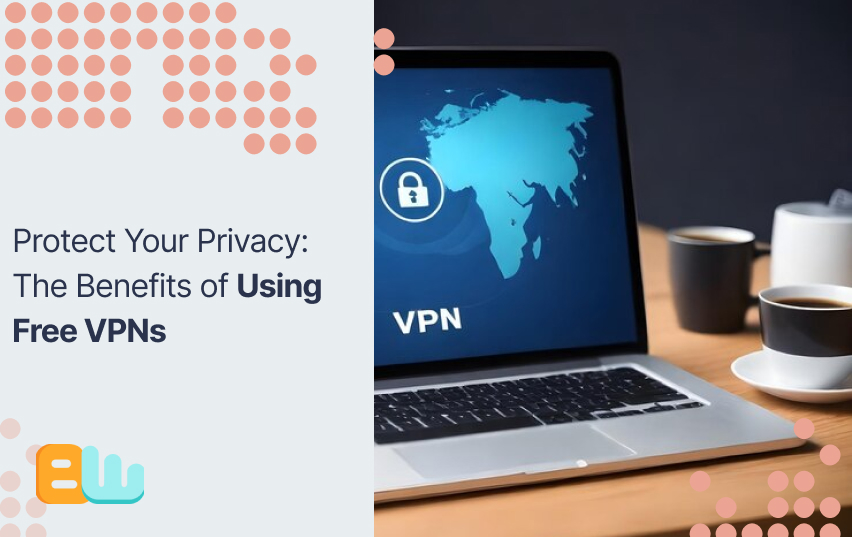
In the digital age, where everything is connected and our online activities are constantly tracked and monitored, protecting our privacy has become more critical than ever. With the increasing number of cyber threats and data breaches, it is essential to safeguard our personal information and online activities. One effective way to do so is using a Virtual Private Network (VPN) service.
A VPN service creates a secure and encrypted connection between your device and the internet, protecting your internet traffic from prying eyes. It masks your IP address and location, making it difficult for third parties to track your online activities. Whether browsing the web, streaming content, or accessing online services, a VPN adds a layer of security and privacy.
In this blog, we will explore the importance of privacy in the digital age and how VPNs play a crucial role in enhancing online privacy. We will discuss the benefits of free VPNs, including accessing geo-restricted content, maintaining anonymity on public Wi-Fi networks, and bypassing internet censorship. We will also address common misconceptions about free VPNs and provide insights on choosing the best VPN service for your needs.
Why Privacy Matters in the Digital Age
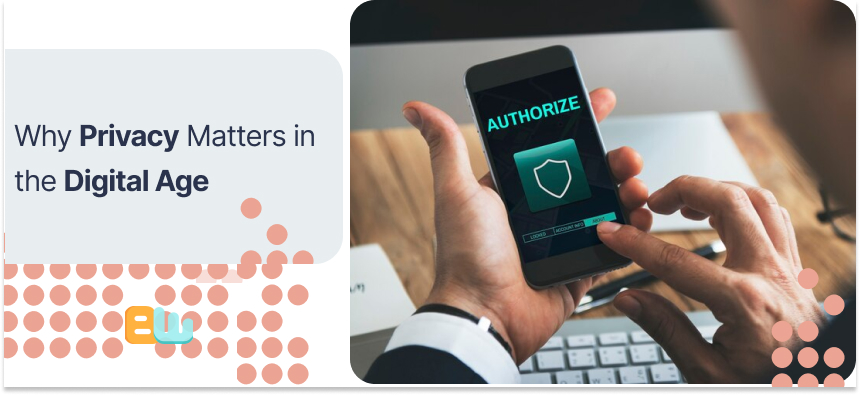
In today’s digital age, our lives are increasingly interconnected with the internet. We rely on it for communication, information, shopping, and entertainment. However, this reliance comes with its own set of risks. Our online activities leave digital footprints that can be tracked and monitored by various third parties, including advertisers, websites, and even internet service providers (ISPs). This constant surveillance not only compromises our privacy but also puts our personal information at risk.
The importance of safeguarding your online activities
Safeguarding your online activities is crucial for protecting your privacy and personal information. Your internet service provider (ISP) has access to your internet traffic and can monitor your online activities. This means they can collect and store information about your browsing habits, search queries, and even the content you access.
You can encrypt your internet traffic and prevent your ISP from tracking your online activities using a VPN service. This adds an extra layer of privacy and ensures your data remains secure. VPNs create an encrypted tunnel between your device and a VPN server, making it extremely difficult for anyone, including your ISP, to monitor or access your internet activity.
How data breaches affect individuals
Data breaches have become increasingly common in recent years, and their impact on individuals can be devastating. When a company or organization’s database is breached, sensitive information such as names, addresses, credit card numbers, and even social security numbers can be exposed. This opens the door for identity theft, where criminals can use your personal information to impersonate you and commit various fraudulent activities.
Identity theft can have severe financial and emotional consequences. It can damage your credit history, lead to unauthorized purchases, and even result in legal issues if the stolen information is used for criminal activities. Protecting your data is essential to prevent such breaches and minimize identity theft risk.
The Role of Free VPNs in Enhancing Online Privacy
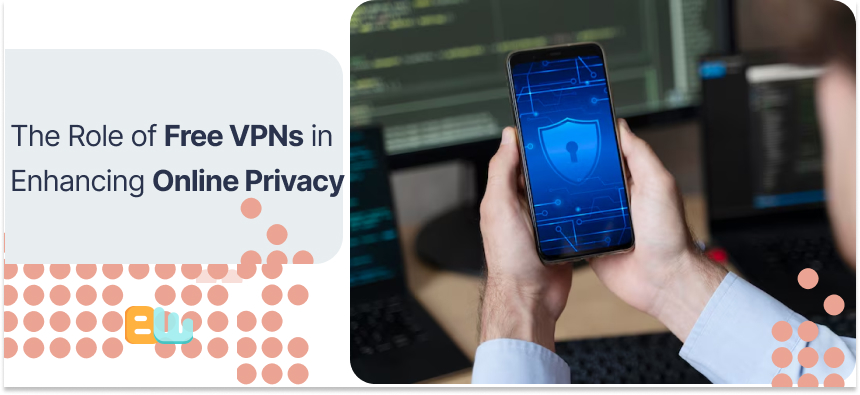
Free VPNs enhance online privacy by providing users with a secure and private network connection. When you connect to a free VPN service, your internet traffic is encrypted and routed through a VPN server, making it difficult for anyone to track or monitor your online activities.
Free VPNs ensure that your online activity remains private and anonymous by masking your IP address and location. They create a virtual private network that separates your internet traffic from the public network, adding an extra layer of security and privacy.
What a VPN does to protect you
A VPN creates an encrypted tunnel between your device and a VPN server. This means that all your internet traffic is securely transmitted through this tunnel, protecting it from potential eavesdroppers or hackers.
When you use a VPN, your data is encrypted, transforming into a more straightforward code to decipher with the proper encryption key. This encryption ensures that even if your data is intercepted, it remains unreadable and secure.
Additionally, a VPN server is an intermediary between your device and the websites or online services you access. This adds an extra layer of privacy by hiding your IP address and making it difficult for websites or online services to track your online activities.
The difference between free and paid VPNs
While both free and paid VPNs offer some level of protection, there are significant differences between the two. Paid VPNs generally provide a higher level of security and privacy compared to free VPN services.
Paid VPNs often have more robust encryption protocols, more servers in different locations, and better customer support. They also tend to have stricter privacy policies and may have undergone independent audits to verify their security measures.
On the other hand, free VPN services may have limitations in terms of server options, internet speeds, and the level of encryption offered. They may also be more likely to initially sell your data to third-party advertisers.
While free VPNs can still provide a certain level of protection, it’s essential to consider the security and privacy offered by free, paid VPN services and choose accordingly based on your needs and priorities.
Advantages of Using Free VPNs
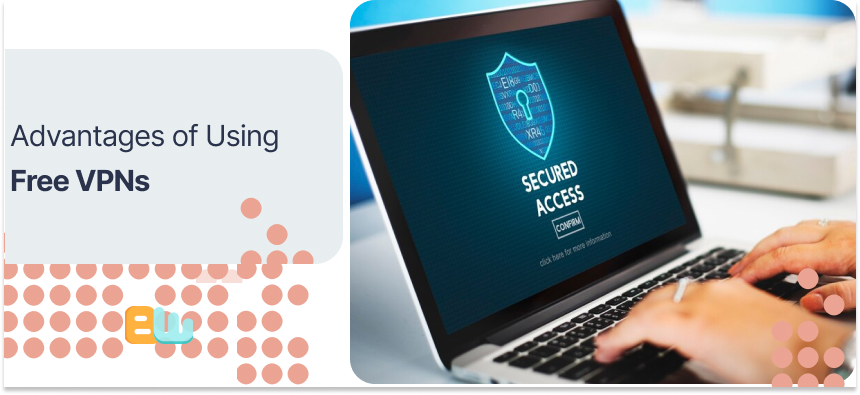
Using a free VPN service offers several advantages, such as faster internet speed, access to content, and bypassing internet restrictions.
Free VPNs can help improve your internet speed by preventing bandwidth throttling. If your ISP is slowing down your internet speed based on specific activities, a VPN can hide your activity type, potentially preventing this targeted slowdown and reducing lag.
Free VPNs allow you to access geo-restricted content securely by connecting to servers in different regions. This means you can bypass internet restrictions and access websites and services blocked or restricted in certain countries.
Accessing geo-restricted content securely
One key advantage of using a free VPN is the ability to access geo-restricted content securely. Geo-restriction refers to restricting access to certain online content based on the user’s geographical location.
You can choose from various server options in different regions when you connect to a free VPN service. By connecting to a server in a specific area, you can bypass the geo-restrictions imposed by websites or online services and access content ordinarily unavailable.
Maintaining anonymity on public Wi-Fi networks
Using public Wi-Fi networks can be convenient, but they also come with their own set of risks. Public networks are often unsecured, making them vulnerable to potential hackers.
Your internet traffic is encrypted and protected from potential threats when you connect to a free VPN service on a public Wi-Fi network. This means that even if someone tries to intercept your internet traffic, they will only see encrypted data, making it impossible for them to decipher or access your personal information.
Bypassing censorship and internet restrictions
Internet censorship is prevalent in specific regions or countries, and access to particular websites and services may be restricted. This can limit internet freedom and access to uncensored information.
Free VPNs help bypass internet censorship and allow users to access blocked websites and services. By connecting to a server in a different region or country, users can appear to be accessing the internet from that location, effectively bypassing the restrictions imposed by their own country.
Common Misconceptions About Free VPNs
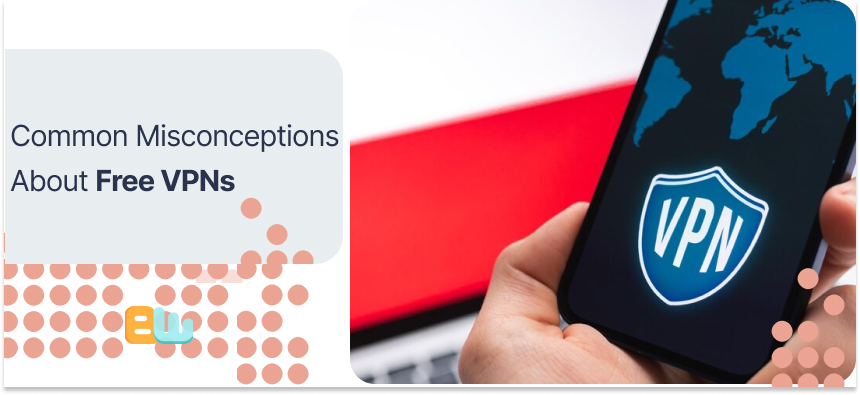
While free VPNs offer several benefits, there are common misconceptions surrounding their usage. Let’s address some of these misconceptions:
Free VPNs are always slow
One common misconception about free VPNs is that they are always slow. While some free VPNs may have limitations in terms of internet speed, this is not true for all free VPN services.
Various factors can affect Internet speed, including the geographical distance between your device and the VPN server, the number of users connected to the server, and the overall server load. These factors can affect the performance of both free and paid VPN services.
All free VPN services sell your data.
Another common misconception about free VPN services is that they sell your data to third-party advertisers. While it is true that some free VPN services may collect and sell user data to third parties, this is not the case for all free VPN providers.
Reputable free VPN providers have strict privacy policies and do not use data-selling practices. They often rely on other revenue streams, such as offering premium paid plans or displaying ads within their app or website, to sustain their services.
Choosing the Right Free VPN
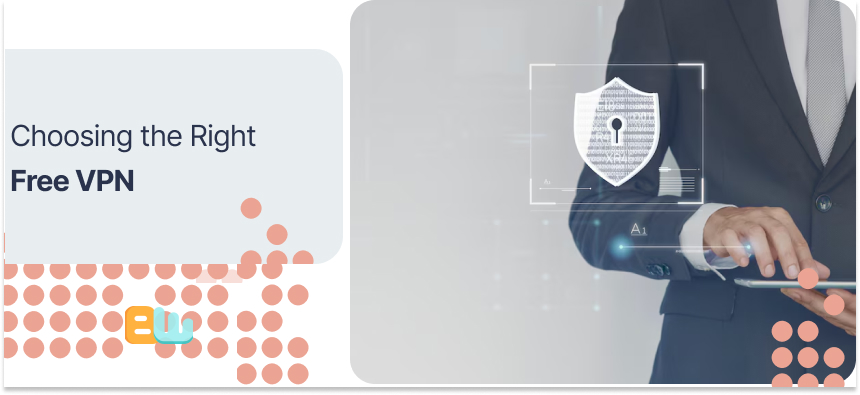
When choosing the right free VPN, prioritize providers that offer robust encryption protocols and a strict no-logs policy. Ensure the VPN has a user-friendly interface and provides support services for troubleshooting. Look for VPNs that offer a variety of server locations to access content from different regions. Avoid free services with numerous ads, which may compromise your online experience. Verify the VPN’s bandwidth cap and confirm it meets your usage needs. Evaluate the level of protection offered and the security features provided.
Key features to look for in a free VPN
When selecting a free VPN, key features are crucial. Look for robust encryption protocols like OpenVPN or IKEv2 for secure data transmission. A strict no-logs policy ensures your online activities remain private. Opt for VPN providers with a vast server network to access content from different regions. Reliable customer support services can promptly address any VPN-related issues. Bandwidth limitations and data caps should be minimal to ensure uninterrupted browsing. Choose a VPN with robust security measures to safeguard your data effectively.
Red flags and warning signs
Free VPN users should be wary of certain red flags and warning signs. One key indicator is a lack of transparent logging policies, which may signal potential data collection practices. Additionally, users should proceed with caution if a free VPN service has a history of security breaches or is based in a country with data retention laws. Another warning sign is a VPN service that bombards users with excessive ads or requires an unusually high level of access permissions on devices. These indicators could point to potential security risks and data privacy concerns.
Limitations of Free VPN Services
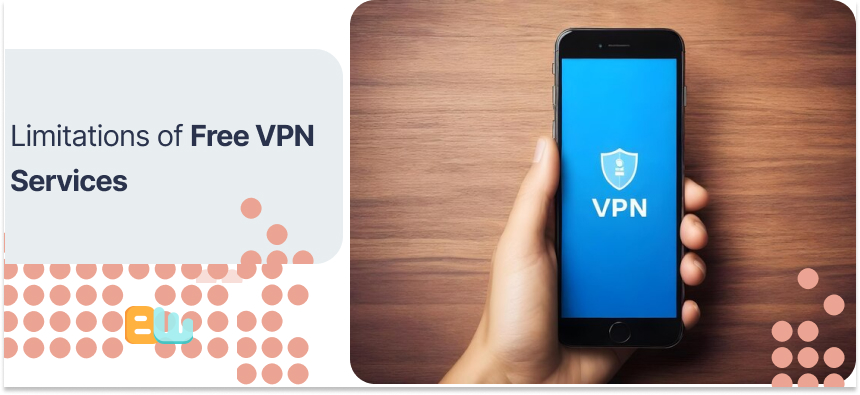
Data caps and bandwidth restrictions are typical limitations of free VPN services. Users may face reduced speeds due to overcrowded servers, impacting their internet experience. Additionally, free VPNs often offer a limited number of servers, restricting access to content from different regions. These services may pose security risks like potential data leaks or insufficient protection for sensitive information. It is essential to be aware of these limitations when considering the level of protection needed for your online activities.
Data caps and bandwidth limitations
Free VPN services often come with data caps and bandwidth limitations that can impact your online experience. These restrictions may lead to reduced internet speeds or even complete disconnection once a specific limit is reached. Being aware of these constraints is crucial as they can hinder your ability to browse freely and securely. Understanding the data caps and bandwidth limitations of free VPNs is essential to make an informed decision about the level of protection and usability you require.
Limited server options and potential for overcrowded servers
Free VPNs often have limitations on server options, leading to overcrowded servers. This can result in slower internet speeds and reduced online content performance. Overcrowded servers may also pose security risks, as the high number of users sharing the same server could increase the likelihood of data leaks or breaches. Additionally, limited server choices may restrict users from accessing certain geo-restricted content or experiencing connectivity issues during peak usage. It’s essential to consider these factors when opting for a free VPN service.
Conclusion
In a world where digital privacy is paramount, free VPNs protect against potential threats. Encrypting your online activities ensures secure browsing and protects sensitive data. While misconceptions exist, such as concerns over speed or data selling, choosing the right free VPN with essential features can mitigate these risks. These services grant access to geo-restricted content, maintain anonymity on public networks, and aid in bypassing censorship. However, limitations like data caps and server options should be considered. Ultimately, prioritizing privacy in the digital age is vital, and free VPNs play a crucial role in safeguarding your online presence.
